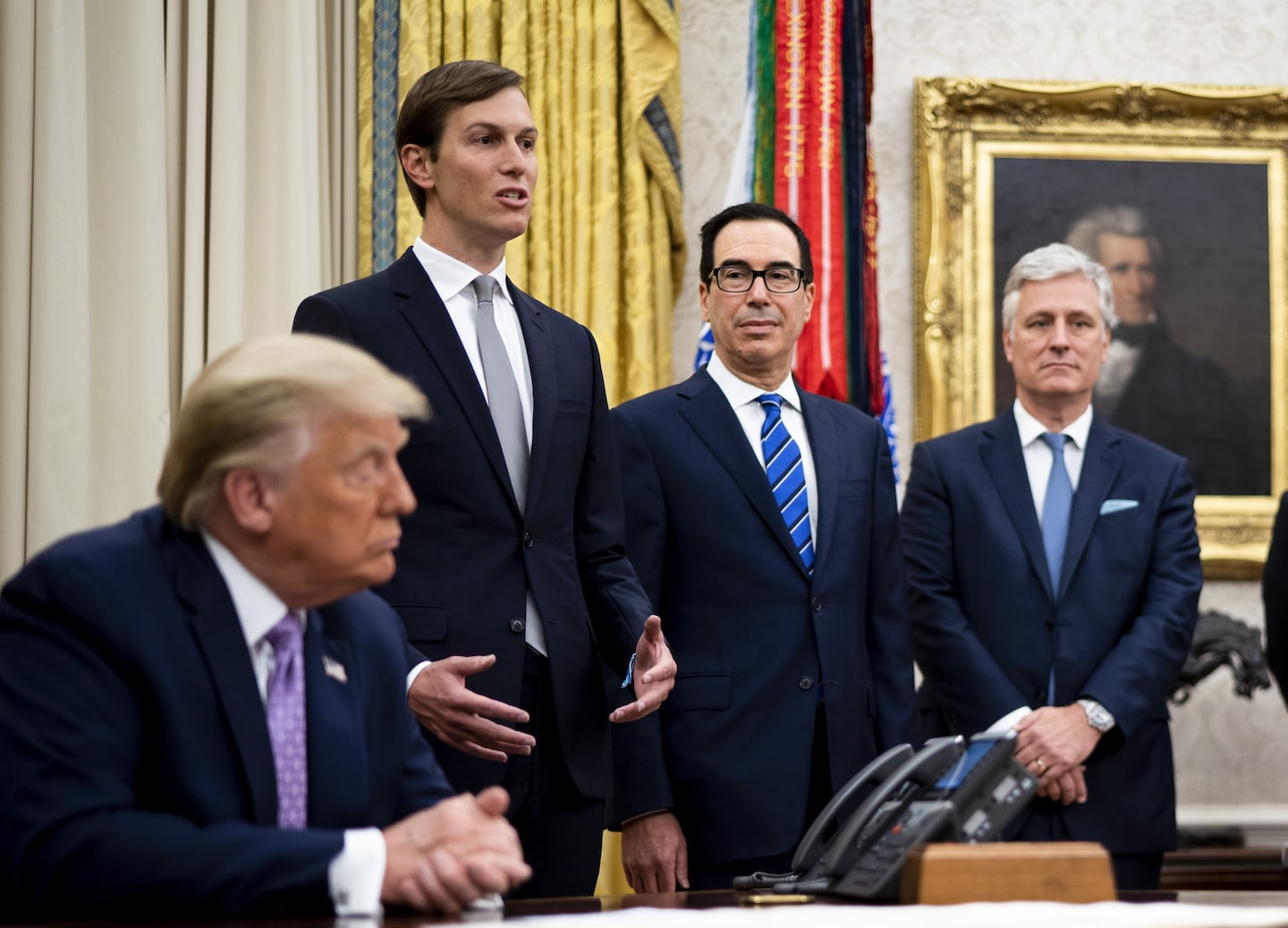Despite the UAE-Israel deal, Trump will leave the Mideast a bigger mess than he found it

Yet it is this region that has provided Trump with his few foreign policy achievements. He has presided over the deaths of two major enemies of the United States — Abu Bakr al-Baghdadi, the leader of the Islamic State, and Maj. Gen. Qasem Soleimani, the leader of Iran’s Quds Force. He can also take credit for the final destruction of the Islamic State’s caliphate — largely by following the Obama blueprint. Now the region has provided his most notable — indeed, virtually sole — diplomatic achievement: the decision by the United Arab Emirates to become the third Arab state to recognize Israel, and Israel’s decision to postpone the annexation of its West Bank settlements.
In truth, Israel and the UAE have been drawing closer for years because of their shared fear of Iran. Trump’s contribution was mostly inadvertent. The Middle East peace plan released by America’s crown prince, Jared Kushner, in January was a virtual invitation to Israel to annex West Bank settlements. If this had happened, it would have done lasting damage to the prospects of a two-state solution. Yet, with Trump’s support, Israeli Prime Minister Benjamin Netanyahu appealed to right-wing voters by promising to make annexation a reality in July. The UAE offered Netanyahu a welcome way to renege on a reckless campaign pledge by offering diplomatic recognition in return for a postponement of annexation.
As so often happens with Trump, he is most adept at solving problems he himself has created — see, for example, the way he blew up the North American Free Trade Agreement, only to rebrand it as the U.S.-Mexico-Canada Agreement. But it would be churlish to deny Trump his victory lap for what is a genuine and welcome achievement. The UAE’s recognition of Israel should not, however, distract us from the reality that Trump’s record on the Middle East is a largely negative one.
As my colleague Jason Rezaian noted, the departure of Iran policy coordinator Brian Hook from the State Department serves as a fitting requiem for Trump’s failed Iran policy. Trump’s disastrous decision to leave the nuclear deal in 2018 has led that country to ramp up its nuclear program; it is now closer to having a nuclear bomb than when Trump took office. And despite Soleimani’s death, Iran has not tempered its support for murderous proxies in Lebanon, Syria, Iraq and Yemen. Now, a United Nations embargo on the sale of weapons to Iran is set to expire after Secretary of State Mike Pompeo failed Friday to convince the Security Council to extend it. Trump’s unilateral sanctions have greatly damaged Iran’s economy, but the Islamic republic has found a friend in China, and it remains more dangerous than ever.
Things look no better in Syria, where a civil war that started in 2011 has killed at least 400,000 people. Horrendous human rights abuses continue — mainly perpetrated by the Assad regime with the aid of its Russian and Iranian allies — despite a tentative cease-fire in Idlib. Trump sabotaged one of the few U.S. achievements in Syria by withdrawing most of the U.S. troops working with the Kurds and allowing Turkish, Syrian and Russian forces to enter the safe zone the Kurds had established with U.S. help in the northeast.
Likewise, the civil war in Yemen, which has already claimed at least 100,000 lives since 2015, continues on its cruel course, pitting the Iranian-backed Houthis against a Saudi-led coalition. The needless suffering in Yemen is one of the consequences of the blank check that Trump has extended to Saudi Arabia’s callow Crown Prince Mohammed bin Salman. Other consequences include the murder of a Post contributing columnist, the attempted murder of a former Saudi intelligence officer in Canada, and possible efforts by the Saudis to build their own nuclear weapons.
A new, pro-Western prime minister in Iraq is trying to rein in Iranian-backed militias, but they are striking back, leaving Iraq’s security as tenuous as ever. Lebanon is in worse shape than ever after a cataclysmic explosion in Beirut, an economic implosion and the spread of the novel coronavirus. Trump’s ballyhooed deal with the Taliban has not produced peace in Afghanistan. Violence has actually spiked, and many Afghans think that a Taliban takeover is inevitable once the last U.S. troops leave next year. And, of course, Israel and the Palestinians are no closer to peace since the release of the Kushner plan.
In short, despite the welcome news about the UAE and Israel, Trump will leave the Middle East an even bigger mess than he found it. That is nothing to boast of.
Read more:






